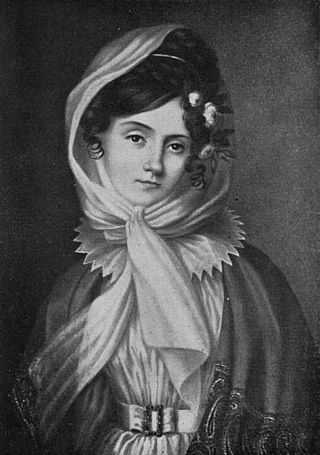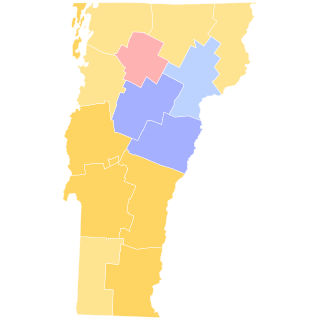Events
| | This section needs expansion. You can help by adding to it. (October 2015) |
- Black Procession
- Elimination of the Permanent Council
| Years in Poland: | 1786 1787 1788 1789 1790 1791 1792 |
| Centuries: | 17th century · 18th century · 19th century |
| Decades: | 1750s 1760s 1770s 1780s 1790s 1800s 1810s |
| Years: | 1786 1787 1788 1789 1790 1791 1792 |
Events from the year 1789 in Poland
| | This section needs expansion. You can help by adding to it. (October 2015) |
| | This section needs expansion. You can help by adding to it. (October 2015) |
| | This section needs expansion. You can help by adding to it. (October 2015) |

The Declaration of the Rights of Man and of the Citizen, set by France's National Constituent Assembly in 1789, is a human and civil rights document from the French Revolution; the French title can also be translated in the modern era as "Declaration of Human and Civic Rights". Inspired by Enlightenment philosophers, the Declaration was a core statement of the values of the French Revolution and had a significant impact on the development of popular conceptions of individual liberty and democracy in Europe and worldwide.

The 18th century lasted from 1 January 1701 to 31 December 1800 (MDCCC). During the 18th century, elements of Enlightenment thinking culminated in the Atlantic Revolutions. Revolutions began to challenge the legitimacy of monarchical and aristocratic power structures. The Industrial Revolution began during mid-century, leading to radical changes in human society and the environment. The European colonization of the Americas and other parts of the world intensified and associated mass migrations of people grew in size as part of the Age of Sail. During the century, slave trading expanded across the shores of the Atlantic Ocean, while declining in Russia and China.

Military awards and decorations are distinctions given as a mark of honor for military heroism, meritorious or outstanding service or achievement. A decoration is often a medal consisting of a ribbon and a medallion.

The Eastern Neisse, also known by its Polish name of Nysa Kłodzka, is a river in southwestern Poland, a left tributary of the Oder, with a length of 188 km and a basin area of 4,570 km2.

Hugo Stumberg Kołłątaj, also spelled Kołłątay, was a prominent Polish constitutional reformer and educationalist, and one of the most prominent figures of the Polish Enlightenment. He served as Deputy Chancellor of the Crown between 1791–92. He was a Catholic priest, social and political activist, political thinker, historian, philosopher, and polymath.

The Permanent Council was the highest administrative authority in the Polish–Lithuanian Commonwealth between 1775 and 1789 and the first modern executive government in Europe. As is still typically the case in contemporary parliamentary politics, the members of the Council were selected from the parliament or Sejm of the Commonwealth. Although it exerted some constructive influence in Polish politics and government, within the uniquely liberal framework of Poland that permitted free speech, because of its unpopularity during the Partitions period, in some Polish texts it was dubbed as Zdrada Nieustająca - Permanent Treason.
Michałów Land is a historical region in central Poland, now part of the Kuyavian-Pomeranian Voivodship. During the Middle Ages, it was a disputed territory between the Kingdom of Poland and the State of the Teutonic Order.

Maria Szymanowska was a Polish composer and one of the first professional virtuoso pianists of the 19th century. She toured extensively throughout Europe, especially in the 1820s, before settling permanently in St. Petersburg. In the Russian imperial capital, she composed for the court, gave concerts, taught music, and ran an influential salon.
Polish census of 2002 was a census in Poland taken from 21 May to 8 June 2002.

Zarzecze is a village in Gmina Chybie, Cieszyn County, Silesian Voivodeship, southern Poland.

State Medical Rescue in Poland is a system of free public emergency healthcare established by Ustawa o Państwowym Ratownictwie Medycznym, including ambulance service and Emergency Departments (EDs). While in Polish public hospitals and clinics NFZ common public insurance is required, PRM medical services in ambulances and EDs are completely free for everyone. Since 2018 emergency ambulances that operates in PRM, that is Polish 112 and 999 emergency numbers, are operated by public entities only.

The 1790 Vermont Republic gubernatorial election for governor of the Republic of Vermont took place throughout September, and resulted in the re-election of former Governor Thomas Chittenden to a one-year term.

The 1791 Vermont gubernatorial election for Governor of Vermont, the first since Vermont joined the Union as the 14th state, took place throughout September, and resulted in the re-election of Governor Thomas Chittenden to a one-year term.

The 1792 Vermont gubernatorial election for Governor of Vermont took place throughout September, and resulted in the re-election of Governor Thomas Chittenden to a one-year term.

The 1793 Vermont gubernatorial election for Governor of Vermont took place throughout September, and resulted in the re-election of Governor Thomas Chittenden to a one-year term.

The 1794 Vermont gubernatorial election for Governor of Vermont took place throughout September, and resulted in the re-election of Governor Thomas Chittenden to a one-year term.

The 1795 Vermont gubernatorial election for Governor of Vermont took place throughout September, and resulted in the re-election of Governor Thomas Chittenden to a one-year term.

The 1796 Vermont gubernatorial election for Governor of Vermont took place throughout September, and resulted in the re-election of Governor Thomas Chittenden to a one-year term.

The 1848 Vermont gubernatorial election took place on September 5, 1848 to elect the governor of Vermont. As no candidate received a majority of the votes cast, the Vermont General Assembly elected Whig Carlos Coolidge, the plurality winner, with 122 votes to 65 for Oscar L. Shafter, 54 for Paul Dillingham, and 1 each for Luke P. Poland and William M. Shafter.
![]() Media related to 1789 in Poland at Wikimedia Commons
Media related to 1789 in Poland at Wikimedia Commons